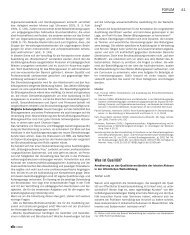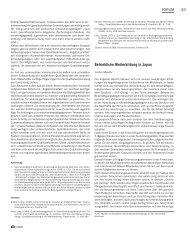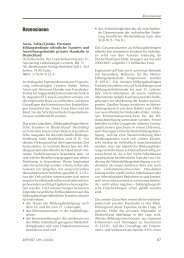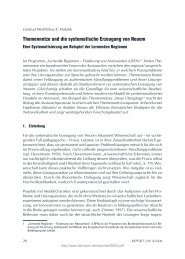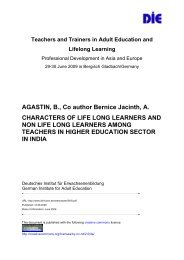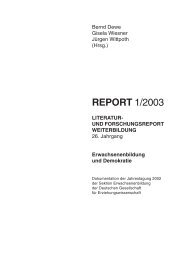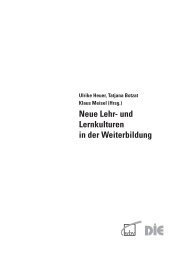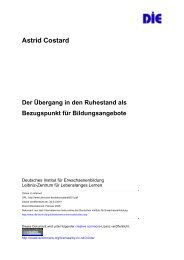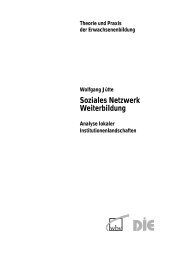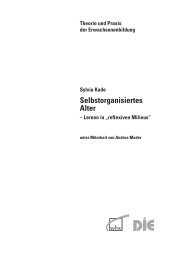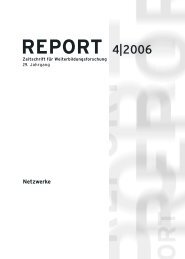Accreditation of Prior Experiential Learning (APEL)
Accreditation of Prior Experiential Learning (APEL)
Accreditation of Prior Experiential Learning (APEL)
You also want an ePaper? Increase the reach of your titles
YUMPU automatically turns print PDFs into web optimized ePapers that Google loves.
different things, for example, <strong>Accreditation</strong> <strong>of</strong> <strong>Prior</strong> <strong>Learning</strong> (APL), and <strong>Accreditation</strong><br />
<strong>of</strong> <strong>Prior</strong> Certificated <strong>Learning</strong> (APCL) and this has led to confusion. APL and <strong>APEL</strong> are<br />
<strong>of</strong>ten used interchangeably yet the former refers to certificated prior learning gained in<br />
formal learning such as “organised courses, modules, workshops, seminars and similar<br />
activities” (Nyatanga/Forman/Fox 1998, p 7). In Australia the process is called Recognition<br />
<strong>of</strong> <strong>Prior</strong> <strong>Learning</strong> (RPL). The ‘A’ in <strong>APEL</strong> stands for accreditation in some situations<br />
and assessment in other. <strong>APEL</strong> describes the process <strong>of</strong> giving formal recognition<br />
to learning acquired informally through experiences in the family, community, leisure<br />
activities, workplace or voluntary work. This could include caring for a relative in the<br />
home, a life transition, or acting as a committee member <strong>of</strong> a community group. Recognition<br />
is also given to learning experienced as a result <strong>of</strong> personal life transitions or<br />
“turning points” (Strauss) such as divorce, bereavement or unemployment (Luedekke<br />
1997). It is learning that is uncertificated and as such involves reflection and analysis <strong>of</strong><br />
past experiences – self-evaluation – to identify explicit learning outcomes or achievements<br />
(Hamill/Sutherland 1994). This may take the form <strong>of</strong> producing a portfolio, project<br />
work, reflective accounts or matching the learning with declared learning outcomes.<br />
In a recent EU Socrates Adult Education project (project number 25019-CP-2-97-1-BE-<br />
ADULT EDUCATION, 1996-99) the use <strong>of</strong> the terms assessment and accreditation was<br />
rejected since neither adequately described the different applications <strong>of</strong> <strong>APEL</strong> as identified<br />
in our survey <strong>of</strong> European countries. For Evans: “The Assessment <strong>of</strong> <strong>Prior</strong> <strong>Experiential</strong><br />
<strong>Learning</strong> involves students or prospective students documenting their learning<br />
from life and work experience in such a way that they can use such documentation to<br />
gain access and advance standing in tertiary education institutions” (1990, p 122).<br />
Similarly Challis argues: “The fundamental principle underpinning <strong>APEL</strong> is that learning<br />
is worthy and capable <strong>of</strong> gaining recognition and credit, regardless <strong>of</strong> the time,<br />
place and context in which it has been achieved. It thus represents a move to accept<br />
that learning is not dependent upon any particular formal setting, and to acknowledge<br />
it as being <strong>of</strong> value in its own right“ (1993, p 1).<br />
<strong>APEL</strong> is significant as a means <strong>of</strong> promoting widening access and social inclusion for a<br />
number <strong>of</strong> reasons. Importantly it challenges existing notions <strong>of</strong> what counts as useful<br />
knowledge by recognising that learning is not confined to formal educational institutions<br />
or the workplace: “<strong>APEL</strong> is essentially about learning from experience. <strong>APEL</strong> also<br />
raises interesting questions about learning and assessment processes, what constitutes<br />
knowledge and the interaction and relationship between formal and informal learning“<br />
(Merrill/Hill 1998, p 21).<br />
Skills and knowledge gained in personal and public domains are both viewed as important.<br />
Everyone has life experiences <strong>of</strong> learning in different contexts. <strong>APEL</strong> acknowledges<br />
that learning does not only occur in formal learning situations and that informal<br />
learning is just as valuable as a knowledge base as formal learning. Emphasis is also<br />
shifted from learning outcomes to the learning process (Storan 1988). <strong>APEL</strong> <strong>of</strong>fers an<br />
58


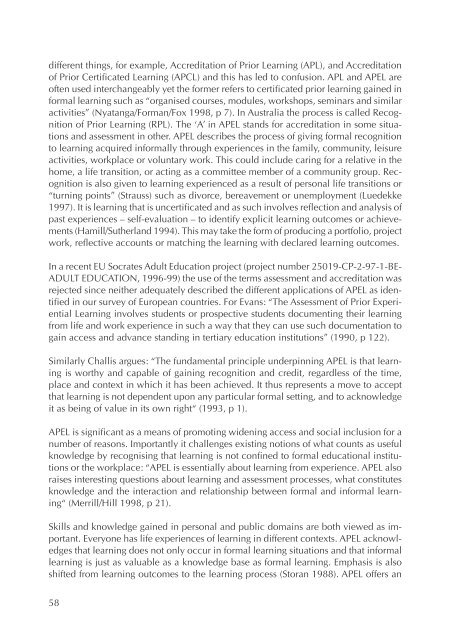
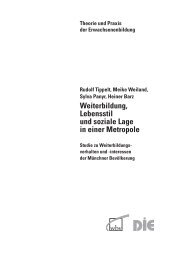
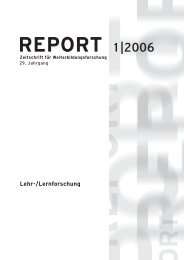
![PDF [KB 892] - Deutsches Institut für Erwachsenenbildung](https://img.yumpu.com/7495168/1/144x260/pdf-kb-892-deutsches-institut-fur-erwachsenenbildung.jpg?quality=85)
